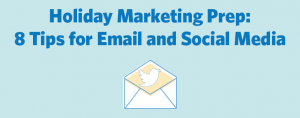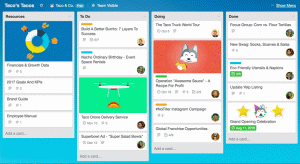For most small businesses, showing up in local search results can turn out to be a make or break situation. Widespread use of smartphones and non-stop connectivity has changed some common behaviors. These local SEO tips will help you feed these new customer behavior and rank higher in Search results.

People no longer take down phone numbers of the handyman or lookup local directories to find a doctor or get things fixed. Most smartphone users now use maps to check out businesses around their current location. Google is still the most used search engine. With ever improving algorithms, and increasing data points, users often get Search results that are contextual.
Therefore, Search results for a specific type of business in location A can be very different form Search results for the same keywords in location B on the other side of your town.
To ensure that your business or professional service shows up for specific keywords, you need a combination of On-Page SEO and Off-page SEO. The keywords that you use need to stress both: your products and services and the location where you provide your services.
So here are some on-page and off-page SEO steps you can take to kick start your Local SEO campaign and ensure that you appear at the top of local search results.
Local SEO Tip #1: Create a Google Business Page
Search engine optimization is difficult. But if Google can make it complex, it also provides the tools to make sure their users get the right information.
With Google My Business, you can create your local business profile with the right information and keywords. This information that you provide is then shared with Google users across their social networks, Google Maps, and Google Search. Once you fulfill the requirement and publish this information, there is a higher chance of your business showing up in the local results.
Local SEO Tip #2: Create a Bing Business Place
Other than Google, Microsoft’s Bing is the other major Search engine that you should care about. With Bing Business Places, you can add your business to the Bing Search engine directory and ensure that your business shows up when people search for the relevant terms in Bing or Yahoo search.
Local SEO Tip #3: Signup to Local Business Directories
Looking up the printed Yellow Pages may not be the thing anymore, but some popular online business directories other than Yellow Pages have become quite popular. Some of these business directories like Yelp also allow your customers to review your business and often rank higher in search results than your web page, at least initially.
These listings not only provide you additional exposure, but also help you with link juice when you launch your web site.
Local SEO Tip #4: Get Business Reviews
Most of these directories and Business profiles allow your customers to review your business on their sites and give you a rating. Once you have your profile on Google and Bing in place, request your repeat, happy customers to review your performance on these web sites.
Reviews on these sites contribute a lot toward ranking your business ahead of your competitor in online Search results.
Local SEO Tip #5: Optimize Business Website
Your business web site is your voice online. This is the page that you control. This is the container that can give visitors the information you want them to give without any restrictions.
To rank up in local Search results, it is important that you add local contact information to your website. Use Schema markup to add your address, operating hours, and other information to your web site’s Contact Us page. You can also add this information to your web site footer so that it is available on every page of the web site.
Local SEO Tip #6: Create Local, Contextual Content
Blogging is perhaps the best contextual, inbound marketing effort you can invest in. Create your unique content with information on your subject and domain in relation to the community you want to target. Talk about local events and issues important to the local community to place your web site in semantic proximity to the local community.
Local SEO Tip #7: Get on Events and Meetups Directories
Local events and meetups attract local people and are also advertised in your local community. You can not only build a useful network of people interested in your business domain, but also get more local traffic to your web site from these directories.
Sponsor some local events and host meetups and add these to local events directories. Networking with local community members can also help build online relationships with other complementary businesses. You can team up with them to provide solutions to your customers and gain new customers in return.
Local SEO Tip #8: Get Local Media Mentions
Get in touch with journalists who cover subjects related to your business or services and help them with the information they need. Connect with editors of local publications and neighborhood papers and get featured in their columns.
Most of these publications also have an online presence. Getting mentioned in local publications and web sites can further boost your credibility and help rank your business.
Local SEO Tip #9: Be Consistent
All of these efforts can go to waste if you do not use the right and consistent information in your online information. Make sure you use the right contact information and the same address everywhere. A slight change in address or name can create a conflict and flag your business as different entities. So make sure that you use the same business information everywhere.
Search Engine Optimization is an ongoing effort, but this small list of things will get you started and boost your rankings in local search.
Digital & Social Articles on Business 2 Community(70)









